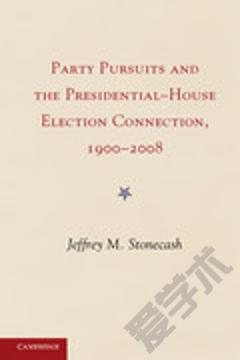Presidents, Parties, and the State: A Party System Perspective on Democratic Regulatory Choice, 1884–1936
Dominant theories of regulatory choice privilege the goals and actions of district-oriented legislators and organized groups. Presidents, Parties, and the State challenges this conventional frame, placing presidential elections and national party leaders at the centre of American regulatory state development. Historically the 'out-party' in national politics between 1884 and 1936, the Democratic party of Grover Cleveland, Woodrow Wilson and Franklin Roosevelt confronted a severe political quandary, one which pit long-term ideological commitments against short-term electoral opportunities. In short, Democrats, when in power, were forced to choose between enacting the regulatory agenda of their traditional party base, or legislating the programs of voting blocs deemed pivotal to the consolidation of national party power. Coalition-building imperatives drove Democratic leaders to embrace the latter alternative, prompting legislative intervention to secure outcomes consistent with national party needs. In the end, the electoral logic that fuelled Democratic choice proved consequential for the trajectory of American state development.
{{comment.content}}








 京公网安备 11010802027623号
京公网安备 11010802027623号